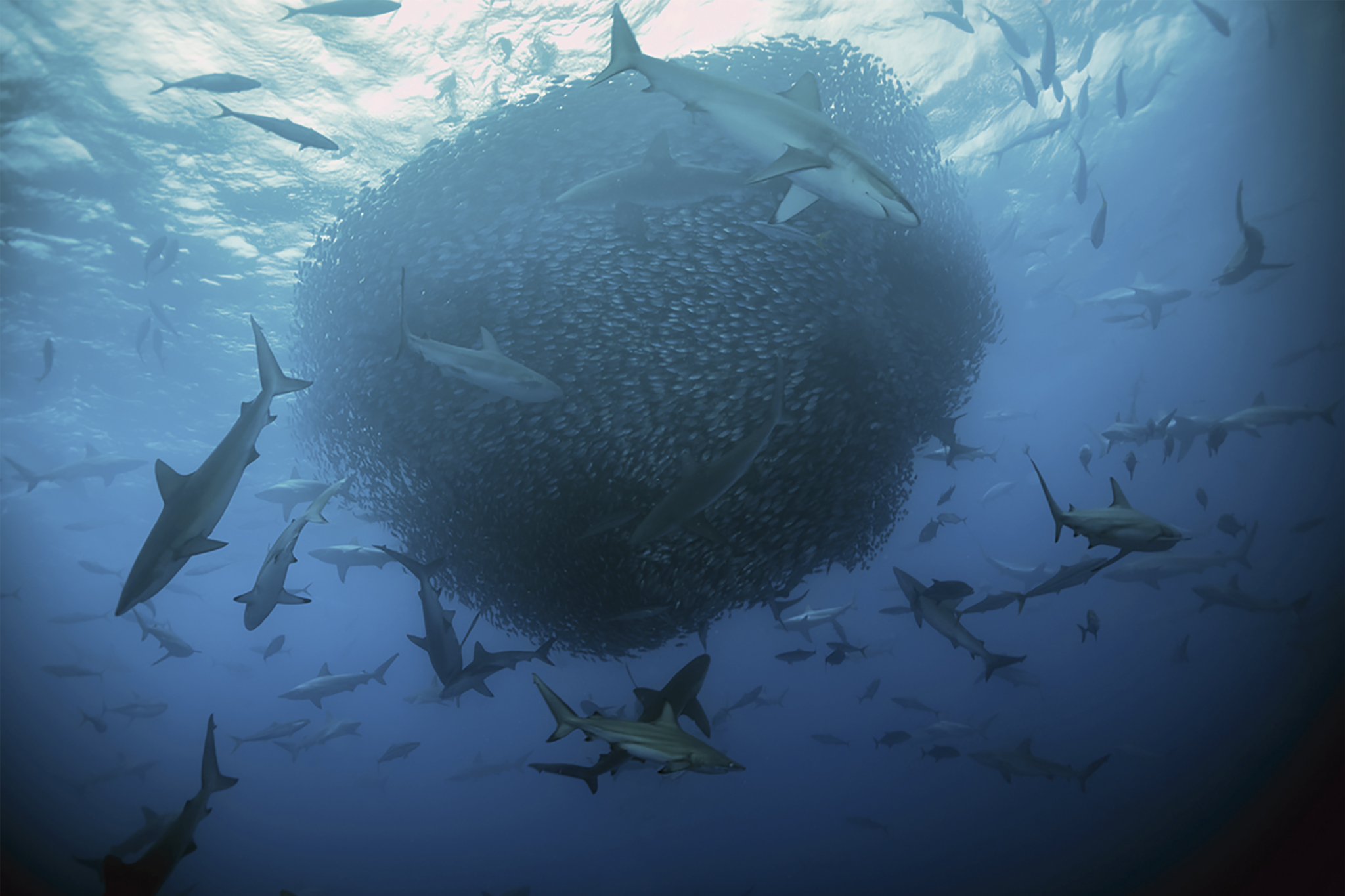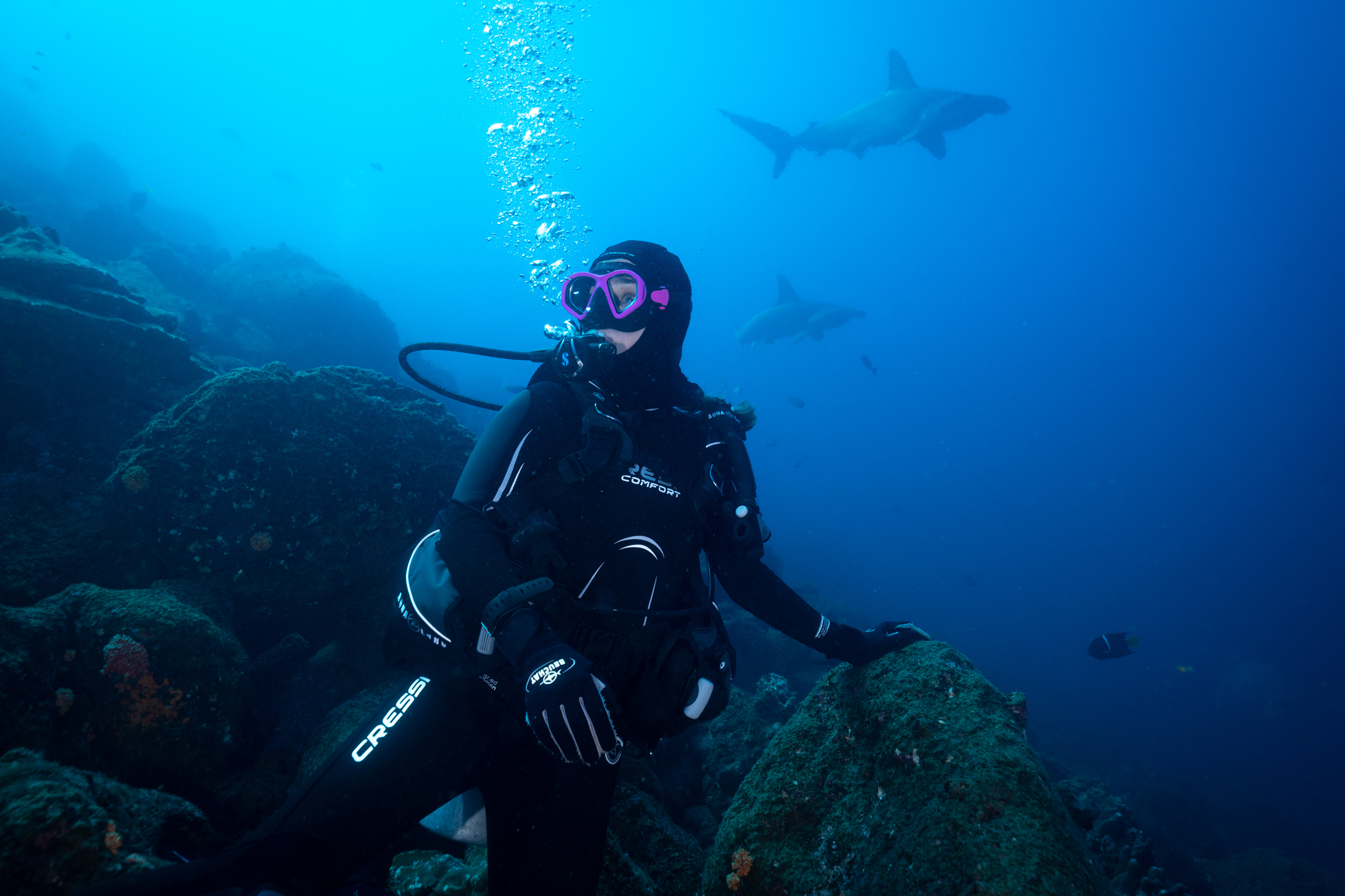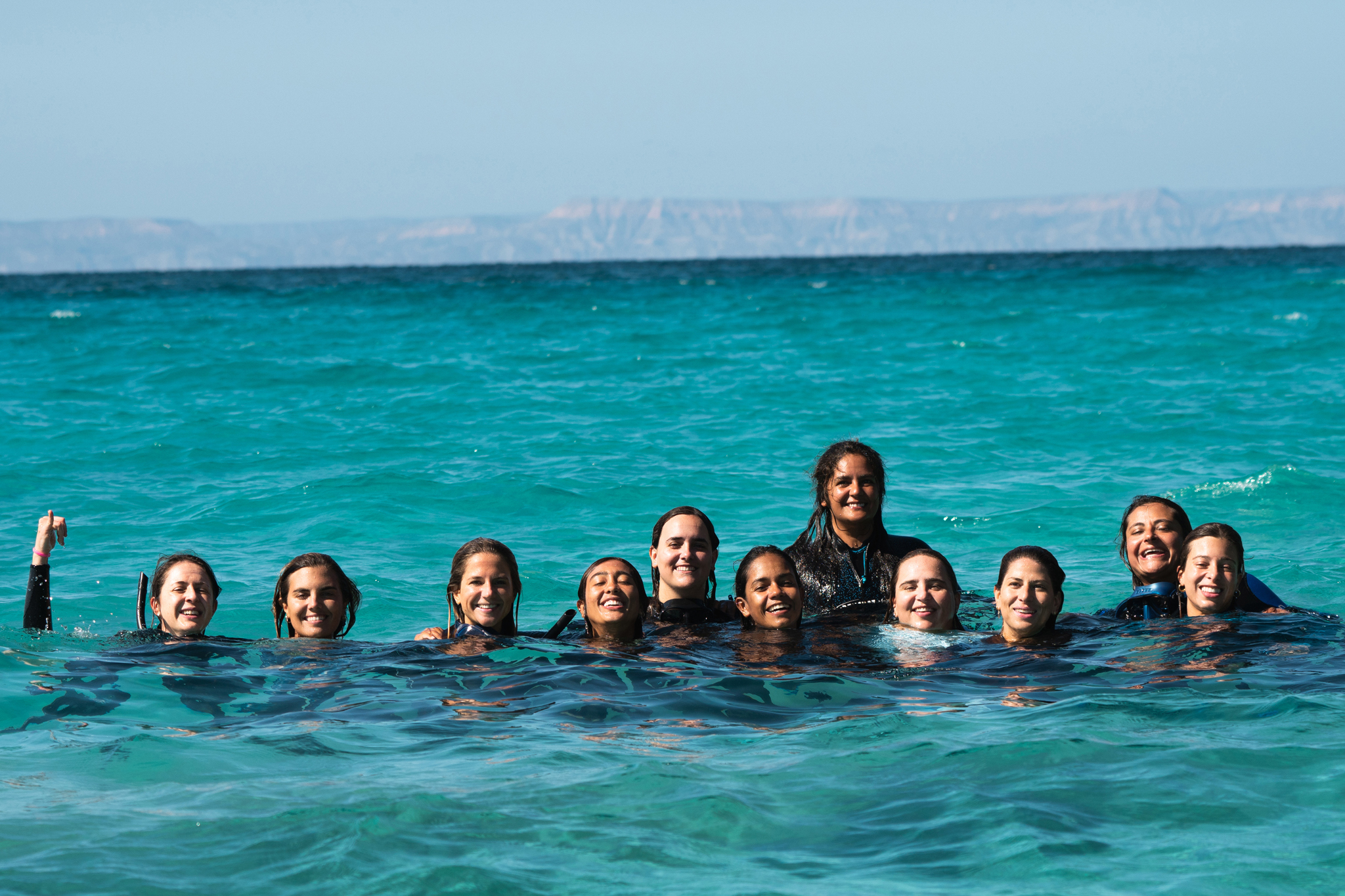It wasn’t until I was 40 years old, with my marriage on life support and my back injured and weak, that I became a devotee of the ocean.
Someone suggested that swimming might be my salvation, so I made my way to the coast where the ocean was cold and wild, and despite its proximity to a major metropolis, more filled with life than I’d expected. The water was crystal clear that day. I counted 50 bat rays on the sandy bottom and was hooked for life.
Since then, I have swum among playful harbor seals, curious sea lions, migrating whales, and surfing dolphins. I swim and dive to disappear into another world where even the smartest phones can’t function. I swim to test myself, to learn important lessons about staying calm when forces greater than I have me in their grip. There is daring and problem solving and self-reliance, but also a profound love for the deep mystery that is the ocean, all oceans.
All of us are saltwater creatures. The ocean is roughly 3% salt, similar to the salinity in amniotic fluid. Like the earth itself, we are mostly saltwater, our every second breath is provided by the world’s oceans. A seemingly infinite resource we have relied upon for transportation, trade, food, sport, fun, and a kind of emotional salve long since we crawled the depths. The ocean is also the earth’s largest carbon sink. All of life depends upon healthy marine ecosystems, and yet, too often, we take more than we need and treat them as a dumping ground.
And so I will fight for them, tell ocean stories whenever I can, and I will swim and I will dive as often as possible.










































































































